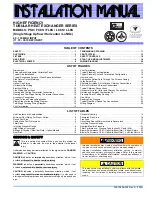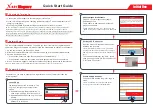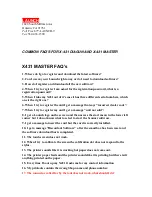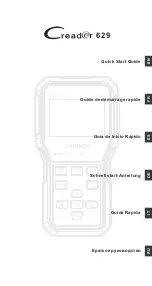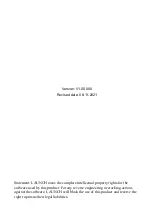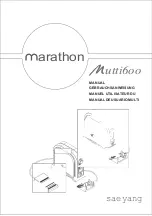
GE
D
IRECTION
FQ091019, R
EVISION
2
V
IVID Q
N S
ERVICE
M
ANUAL
Chapter 7 - Diagnostics/Troubleshooting
7-17
-
Memory Test
The Memory Tests are used to perform a variety of memory checks, as described below.
For test procedure instructions, see the
Memory Test section, page 7-124
•
Full Memory Test:
Uses 18 test patterns to test memory locations. If errors are detected,
the address of the block in which the error was detected is shown. During testing, these
diagnostics will also look for parity errors and other exceptions. If encountered, these are
added to the test log as errors.
•
Memory Pattern Test:
Uses several test patterns to test as much memory as possible.
•
Memory Parity Test:
Checks for parity errors on the memory bus during intensive string
transfer operation. If an error is detected, the address of the failed block is displayed.
-
Video Test
The Video Tests are used to perform a variety of video diagnostic tests, as described below.
These tests use 18 test patterns to fill the video buffer, testing your graphics acceleration and
text output
For test procedure instructions, see the
Video Test section, page 7-126
•
Full Video Test:
Test the system’s video capabilities. This involves testing the memory,
testing the graphics acceleration and testing the text output. You can follow the tests
being performed on the monitor. This test can be cancelled at any time by pressing <
Esc>
on the keyboard.
•
Video Memory:
Tests the video memory by filling the video buffer with 18 test patterns,
one pattern at a time. These tests fill the entire screen with a single color.
•
Video Data Transfer:
Tests the graphics acceleration part of the video controller. This
test fills the screen with black and white concentric squares, and rectangles of various
sizes and colors. If errors are detected, the locations of the problems are displayed.
•
Video Text Output:
Prints a text string in random sizes and colors to test the video device
driver and video controller.
-
PCI Test
A Peripheral Component Interconnect (PCI) bus is a fast standard bus that is common in
Pentium systems. The PCI Test is performed to ensure that the PCI bus is working up to
speed. The motherboard is scanned to verify the configuration space and to ensure that the
diagnostics can communicate with the board.
For test procedure instructions, see the
-
Network Test
A Network Interface Card (NIC) is a computer circuit board or card that is installed in a
computer so that it can be connected to a network. Networks are used by businesses and
some home users to connect PCs together so that they can share files and resources. Data
travels over a network connection much faster than over standard internet connections.
The PC Doctor Network Test will reveal that a network card is present without a driver
installed. These cards are likely to not show up on a PC's list of network cards available for
test. This may cause the test to return a result of “not applicable”, meaning no network cards
were found. The test may detect other issues such as electrical interference (noise), circuitry
damage, loose connectors, and crimped or bad network cables.































